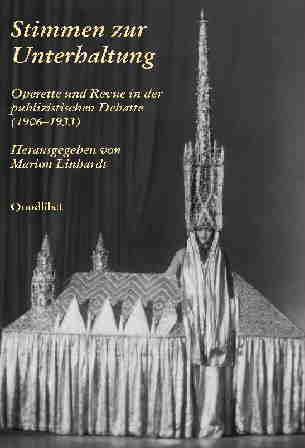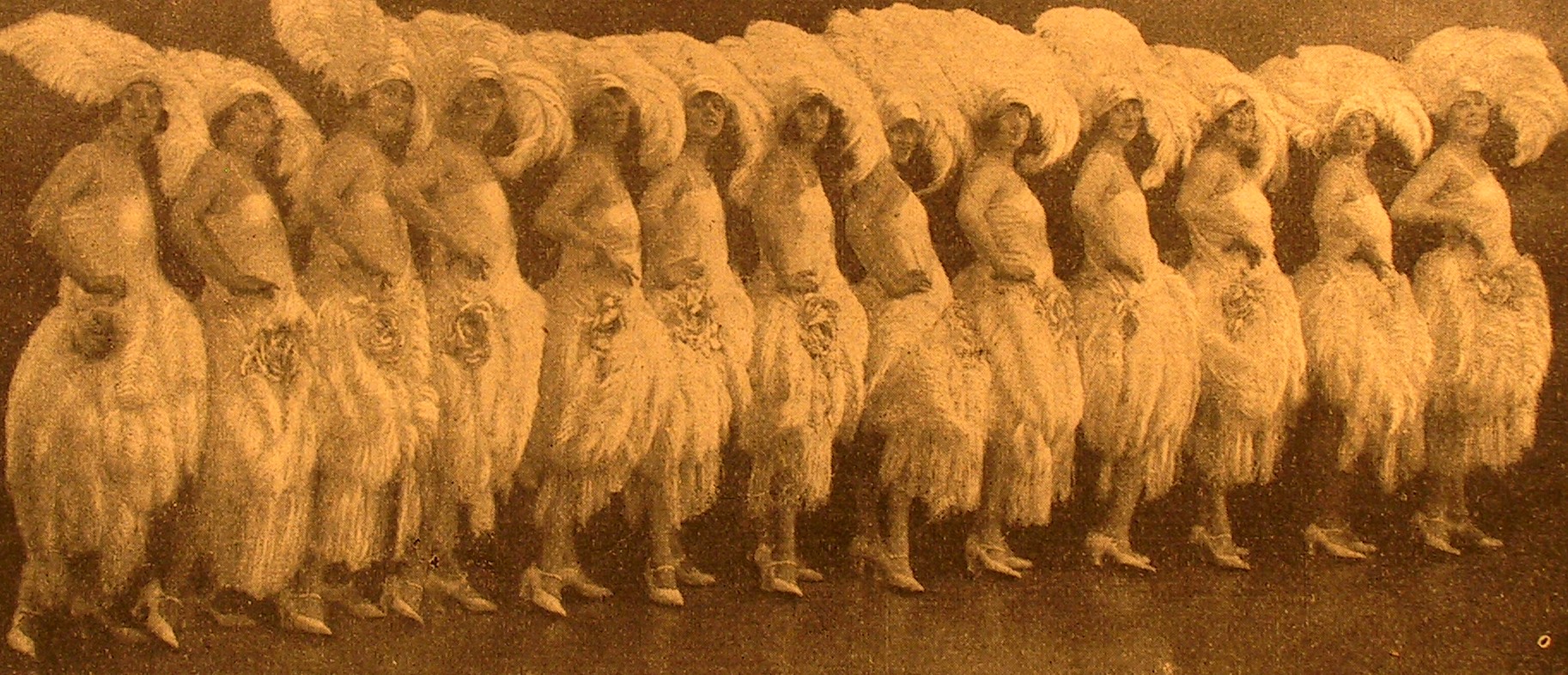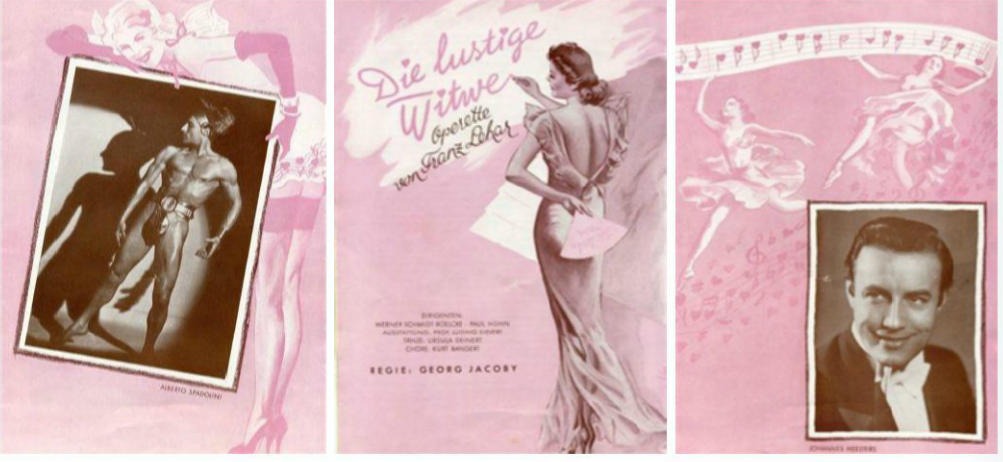Kevin Clarke
Operetta Research Center
17 April, 2018
This is one of those publications that should have made a big splash – but didn’t. Back in 2009, Marion Linhardt edited a collection of historical texts about operetta and revue. And presented them in an attractively packaged book entitled Stimmen zur Unterhaltung: Operette und Revue in der publizistischen Debatte (1906-1933). Apart from famous authors such as Felix Salten (“Die neue Operette,” 1906) und texts by famous operetta performers such as Louis Treumann (“Die Wiener Operette und ich,” 1928), there are also texts by composers like Oscar Straus (“Operetten-Betrachtungen,” 1910), and there is an expansive intro by Miss Linhardt herself, entitled “Einblicke in den Theateralltag der Moderne,” or “A Glimpse at Daily Theatre Life in Modern Times/Modernity.”

Marion Linhardt’s “Stimmen der Unterhaltung,” 2009.
As a collection of source materials, Miss Linhardt goes way beyond what Steven Suskin did with his “Critical Quotebook” Opening Night on Broadway, because this isn’t about opening night reviews of famous shows. These are texts that take a much more fundamental look at the art form: for example Josef Stolzing with “Die Operettenseuche” (The Operetta Plague) 1917, or Bogumil Zepler with “Die Neuwiener Operette” (The New Viennese Operetta) 1910, or August Spanuth with “Die Operette in Amerika” (Operetta in the USA) 1908.

One of operetta history’s first (and most famous) “wet dream leading men”: Louis Treumann as Danilo, 1905.
Nevertheless, some of the texts deal with specific shows. And it’s eye-popping to read what Felix Salten has to say about The Merry Widow and its original superstar Louis Treumann. Salten calls Treumann as Danilo a “Menschendarsteller” who is “delicate, slender, flexible, and a bit feminine.” He claims Treumann “is slightly touched by vice and hysteria,” and that he doesn’t act “in a naturalistic way (thank God!)”, instead he “stylizes.”
There are probably not many Danilos in recent memory of which you could say these things. More interestingly, the Danilo on the John Eliot Gardiner recording (Deutsche Grammophon) that officially claims to “stick to the original 1905 ideals” of Lehar’s masterpiece is as far removed from Treumann as is imaginable. Which makes you question how serious Mr. Gardiner is about “historically informed performance practice.” (Which he also claims for his Handel and Bach and Monteverdi recordings.) Certainly baritone Bo Skovhus is not someone you could describe as “a slim, edgy, fragile person with a slim, edgy, fragile voice.” So where does that place his Danilo in relation to 1905?
You can start reading anywhere in this book if you speak German, since all texts are in German. My own heart laughed when it read about the “fleshly sensuality” (“fleischliche Wollust”) of modern operetta post-Witwe or about the “internationalization and eroticizing” of the genre. The texts themselves might take an international perspective, but Miss Lindhardt’s focus of mostly on Vienna and Viennese Operetta, not on operetta in the world. For that you need to consult Kurt Gänzl and his various publications.

The “Mariza” girls in the 1924 Berlin production. (Photo: Operetta Research Center)
Much as I also enjoyed reading Miss Linhardt’s intro, it is deeply disturbing that every second footnote is a reference to another Linhardt publication, while at the same time there is hardly any discussion of other people’s research. It’s a strange phenomenon that some German langue researchers seem to see only themselves, rather than place their ideas in a wider context and allow a wider discussion. That’s a serious drawback of Miss Linhardt’s work, as historically grounded as it is. And it’s a staggering contrast to Laurence Senelick whose Jacques Offenbach and the Making of Modern Culture (2018) quotes widely across the entire spectrum. This is not to say that it’s not interesting to hear what Miss Linhardt has to say, on the contrary. But she creates the illusion that she’s the only one saying these things, which is slightly misleading.

The program for the 1940 production of “Die lustige Witwe” with Johannes Heesters (r.) and Alberto Spadolini (l.). (Photo: Atelier Alberto Spadolini)
As a 300 page book containing so many important texts on Vienna and modern Viennese Operetta, this could be a role model for other publications. I’d love to have a similar reader for operetta from Nazi times (1933-1945), or about the Berlin operetta scene of the 1920s, or about Offenbach’s Paris premieres in the 1850s and 60s, as a compendium to the collection of Viennese first production revues in Offenbach und die Schauplätze seines Musiktheaters. It would also be great to have such text collections in translation, so that the important things that were once said about the genre can overcome language barriers and reach students/researchers the whole world over.

Mirjana Irosch was an extremely beautiful Operetta star singer and still may be now doing a few character parts here and there. Harald Serafin was absolutely debonaire on stage, an elegant baritone even in older age. He was also (recently retired) director of the Moerbisch Summer open air Operetta Festival in Austria near the Hungarian border which has had popular opulent productions and always sells out all Summer. They are household names in Vienna.
Hear, hear. I haven’t seen the book, but collections of contemporary writings are always fascinating. I have an 18th century British book which consists wholly of various reviews of the current actors. It gives a much clearer picture of the people and the times than ‘scholarly works’ or memoirs.
Agreed: I find footnotes a horrid feature of ‘academic’ writing. As my first publisher said, if it’s worth saying, put it in the text! And oh dear, to reference ones self … truly gauche!
Perhaps I had better get this book …
Are you mentioning Harald Serafin as an alternative example to Bo Skovhus as Danilo, as someone closer to the Treumann ideal?